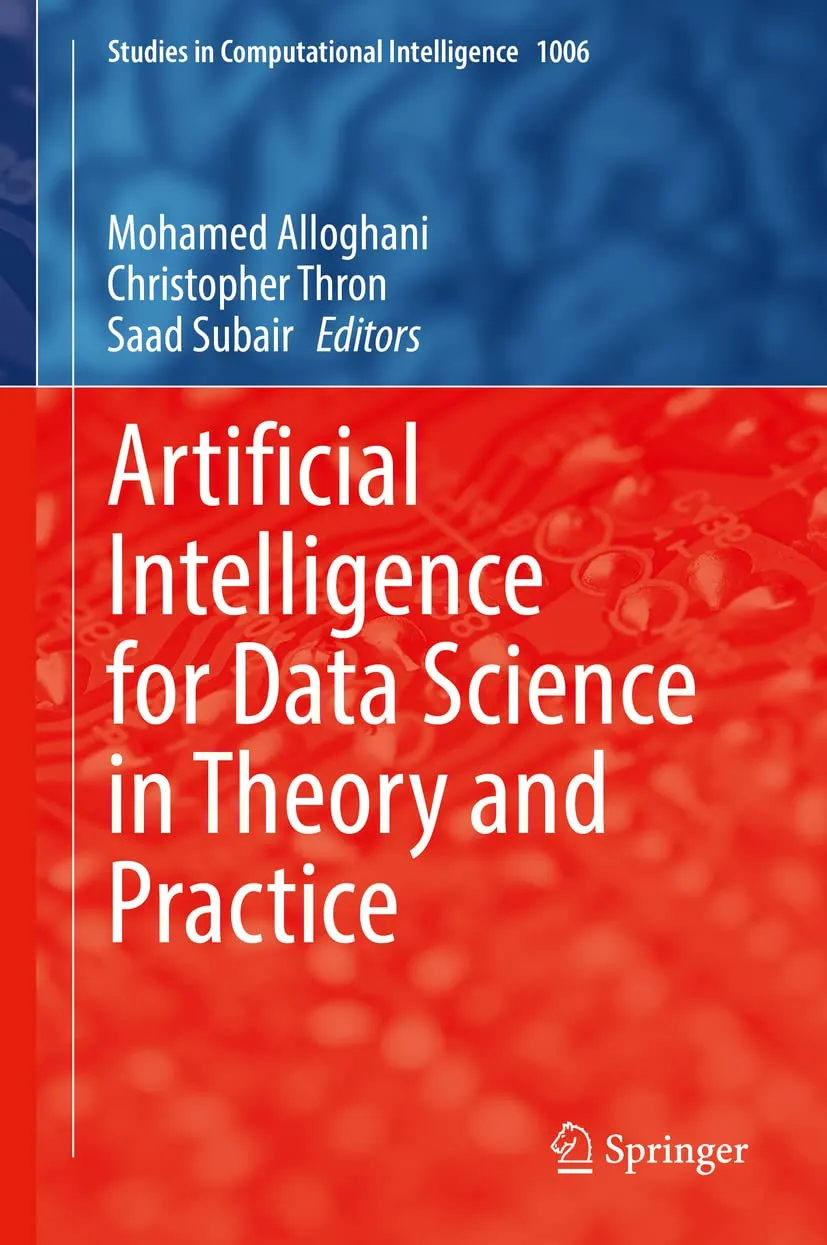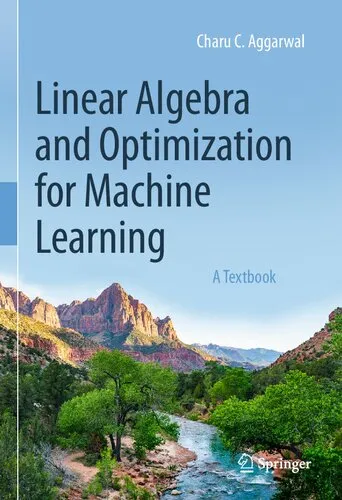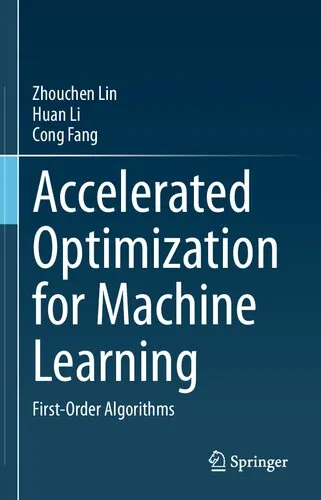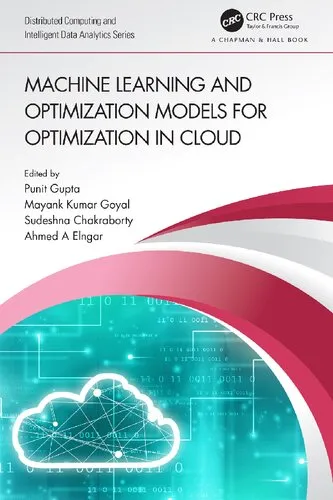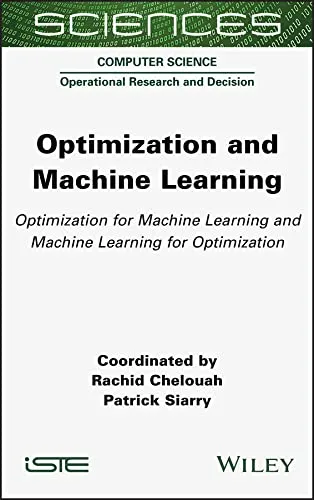Artificial Intelligence, Machine Learning, and Optimization Tools for Smart Cities: Designing for Sustainability (Springer Optimization and Its Applications, 186)
4.5
Reviews from our users

You Can Ask your questions from this book's AI after Login
Each download or ask from book AI costs 2 points. To earn more free points, please visit the Points Guide Page and complete some valuable actions.Related Refrences:
Introduction to the Book
"Artificial Intelligence, Machine Learning, and Optimization Tools for Smart Cities: Designing for Sustainability" serves as a comprehensive exploration of the intersection between advanced analytical techniques and sustainable urban development. The book brings together cutting-edge research, practical applications, and futuristic insights to empower readers to harness Artificial Intelligence (AI), Machine Learning (ML), and optimization methods to address the critical challenges smart cities face today.
As urbanization accelerates and cities become increasingly complex ecosystems, sustainable design is no longer an option—it's an imperative. This book delves into the tools and methodologies that enable cities to enhance sustainability, efficiency, and livability. By integrating AI, ML, and optimization technologies, it provides a transformative blueprint for engineers, urban planners, data scientists, and policymakers seeking data-driven, scalable solutions for urban life.
Detailed Summary of the Book
The book is structured to address the most pressing challenges in modern urban design, emphasizing the role of computational intelligence and optimization in fostering sustainability. It explores topics such as energy efficiency, smart infrastructure, traffic management, waste reduction, and climate adaptation, among others. Each chapter provides real-world examples, case studies, and academic insights that demonstrate the practical implementation of AI techniques for smart city development.
Key themes covered include:
- How AI and ML can be leveraged to optimize energy consumption in urban areas to minimize environmental impact.
- The role of autonomous systems in sustainable transportation and traffic flow management.
- Using predictive analytics for urban planning and disaster preparedness.
- Applications of mathematical optimization models for resource allocation in water management, waste handling, and public services.
- Overcoming challenges of data integration and privacy within smart cities using decentralized AI solutions.
Throughout the book, the focus remains on balancing technological innovation with environmental stewardship—a necessity for sustainable urban environments of the future.
Key Takeaways
After reading this book, you will gain:
- A deep understanding of how AI, ML, and optimization can address critical urban challenges and enhance overall sustainability.
- Insight into real-world case studies that highlight successful applications of these tools within urban contexts.
- Familiarity with the role of algorithmic solutions in domains such as energy, mobility, and infrastructure.
- Guidelines for policymakers and urban planners to integrate emerging technologies while retaining ethical and sustainable principles.
- Strategies to overcome implementation and scalability challenges specific to smart cities.
Famous Quotes from the Book
"The future of urban living hinges on our ability to transform data into actionable intelligence, enabling cities to thrive without compromising the environment."
"AI and Machine Learning are not just tools; they are catalysts for redefining urban sustainability in the 21st century."
Why This Book Matters
Urban areas worldwide are grappling with unprecedented challenges, from overpopulation and energy crises to environmental degradation. This book addresses the urgent need for sustainable solutions by leveraging the transformative potential of AI, ML, and optimization. Unlike many resources that focus solely on theory or application, it bridges the gap between academic research and practical implementation. The insights provided go beyond technical solutions, emphasizing the ethical implications and long-term impact of these technologies on urban life.
What makes this book particularly relevant is its interdisciplinary approach. It appeals to a broad audience, including urban planners, engineers, students, and policymakers, by offering actionable insights tailored to a wide range of professional needs. Whether you are looking to design energy-efficient buildings, manage transportation networks, or develop policy frameworks for smart cities, this book equips you with the necessary tools to make data-informed, sustainable decisions.
In an era defined by rapid urbanization and technological advancement, the book stands as a crucial resource for anyone aiming to shape the cities of tomorrow. It reminds us that sustainability is as much about innovation as it is about intention, offering solutions that are as practical as they are transformative.
Embark on a journey into intelligent urban systems to design cities that are not just smart, but also sustainable.
Free Direct Download
You Can Download this book after Login
Accessing books through legal platforms and public libraries not only supports the rights of authors and publishers but also contributes to the sustainability of reading culture. Before downloading, please take a moment to consider these options.
Find this book on other platforms:
WorldCat helps you find books in libraries worldwide.
See ratings, reviews, and discussions on Goodreads.
Find and buy rare or used books on AbeBooks.
1246
بازدید4.5
امتیاز0
نظر98%
رضایتReviews:
4.5
Based on 0 users review
Questions & Answers
Ask questions about this book or help others by answering
No questions yet. Be the first to ask!
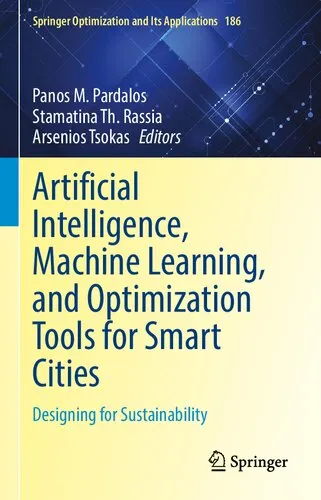
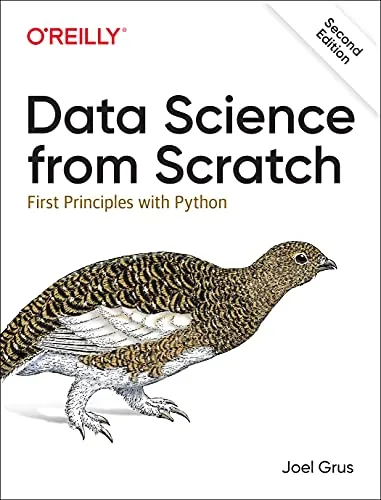

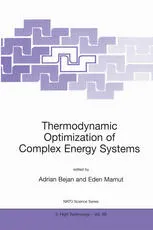
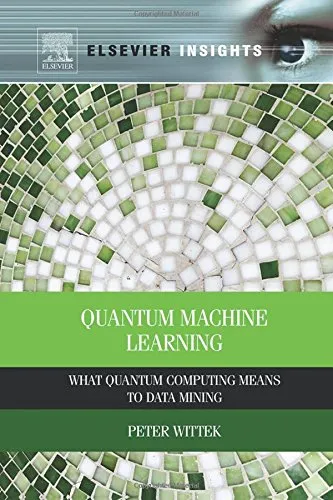

![Building Data Science Applications with FastAPI: Develop, manage, and deploy efficient machine learning applications with Python [Team-IRA]](https://s3.refhub.ir/images/thumb/Building_Data_Science_Applications_with_FastA_31328.webp)

